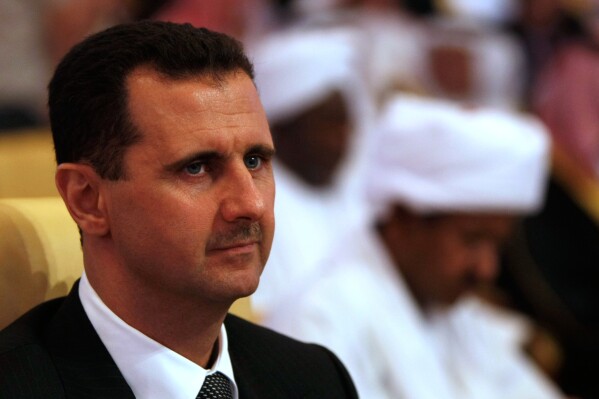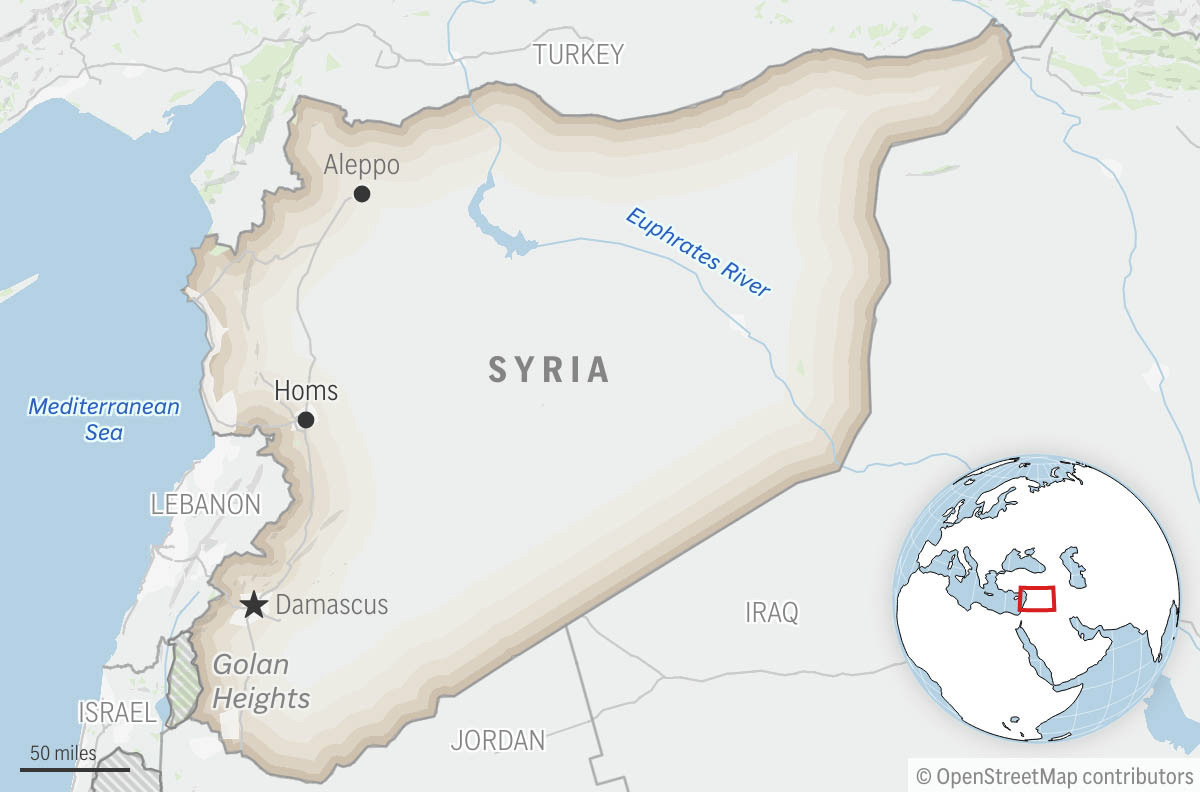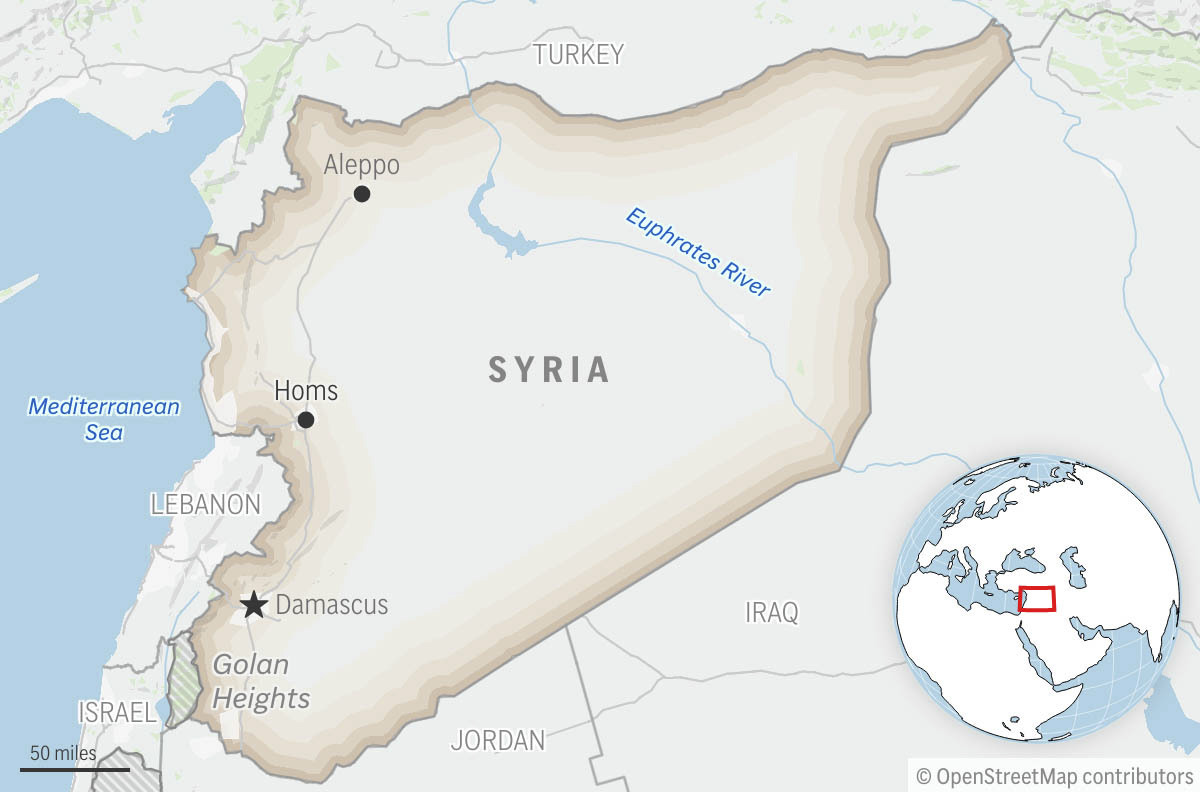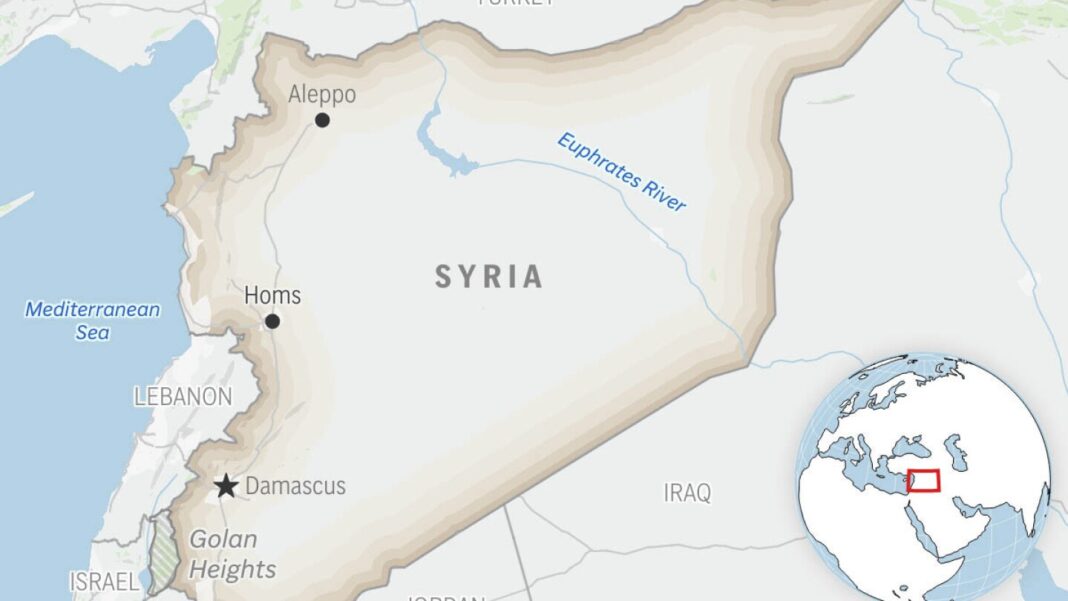The sands of the Middle East are shifting, and whispers of reconciliation echo across the region. In a move that could signal a thaw in frosty relations, Saudi Arabia and Qatar have stepped forward to pay back Syria’s substantial debt to the World Bank. This act of financial diplomacy, a stark departure from the recent geopolitical landscape, begs the question: Does this signify a return to normalcy for Syria, or is it a carefully orchestrated play on a larger, more complex chessboard?
Financial Lifeline: Breaking Down the Deal
Paying the Price: Examining the $15 Million Debt and its Significance for Syria’s Economic Recovery

The repayment of Syria’s nearly $15 million debt to the World Bank, a seemingly modest sum, holds significant implications for the war-torn country’s economic recovery. While the figure pales in comparison to the estimated $400 billion needed for reconstruction, it symbolizes a crucial step towards re-establishing trust with international financial institutions and unlocking much-needed aid.
Syria’s economy has been decimated by over a decade of conflict, leaving infrastructure in ruins and businesses crippled. The debt repayment demonstrates a commitment to financial responsibility, a prerequisite for attracting foreign investment and stimulating economic growth.

The World Bank’s Role: Analyzing the Impact of the Debt Repayment on the World Bank’s Future Support for Syria
The World Bank’s decision to potentially resume support for Syria hinges on this debt repayment. For years, the institution has withheld funding due to the ongoing conflict and concerns about transparency and governance. The repayment signifies that Syria is taking steps to address these issues, paving the way for the World Bank to re-engage.
The Bank’s return could be transformative, providing crucial funding for infrastructure projects, healthcare, education, and social safety nets. It would also send a powerful signal to other donors, encouraging them to contribute to Syria’s reconstruction.

“Vital Sectors”: Dissecting the Vague Language Surrounding the World Bank’s Future Allocations and What Sectors Might Benefit
While the World Bank’s statement mentions allocating funds to “vital sectors,” it remains unclear which areas will receive priority. This ambiguity could stem from ongoing negotiations and the need to assess Syria’s most pressing needs.
However, based on past World Bank interventions in conflict-affected countries, it is likely that the focus will be on:
- Infrastructure Development: Restoring damaged roads, bridges, hospitals, and schools is essential for rebuilding Syria’s economy and providing essential services.
- Social Safety Nets: Providing support to displaced populations, vulnerable families, and small businesses will be crucial for mitigating poverty and promoting social stability.
- Healthcare and Education: Strengthening these sectors will contribute to long-term human development and help rebuild Syria’s social fabric.
The success of these interventions will depend on effective governance, transparency, and a commitment to inclusive development that benefits all Syrians.

Shifting Sands: The Geopolitics of Aid
The decision by Saudi Arabia and Qatar to pay Syria’s debt is not solely driven by humanitarian concerns; geopolitical factors also play a significant role. The two Gulf states have been vying for influence in Syria since the conflict began, supporting different factions and vying for a position in the post-conflict landscape.
By assuming this financial responsibility, Saudi Arabia and Qatar are solidifying their ties with the newly established government led by Ahmad al-Sharaa, the head of the Islamist Hayat Tahrir al-Sham (HTS). This move could grant them greater leverage in shaping Syria’s future trajectory and potentially marginalizing other regional actors.
However, the international community’s response to this development remains cautious. While some countries, particularly in Europe, have begun easing sanctions against Syria, the United States remains hesitant to recognize the new government, citing HTS’s designation as a terrorist organization. This divergence in approaches highlights the complex geopolitical dynamics at play.
Western concerns regarding human rights, corruption, and the potential for renewed conflict complicate the path towards full-fledged reconstruction and international cooperation. The success of aid efforts will hinge on a delicate balancing act, addressing Syria’s urgent needs while also upholding international standards and ensuring accountability.
New Power Players: Exploring the Motivations Behind Saudi Arabia and Qatar’s Financial Support for Syria’s New Leadership
The recent decision by Saudi Arabia and Qatar to pay off Syria’s outstanding debt to the World Bank marks a significant shift in the regional dynamics of the Middle East. This move is likely to have far-reaching consequences, not only for Syria but also for the geopolitical landscape of the region.
Saudi Arabia and Qatar have been the main backers of Syria’s new leadership since the fall of Bashar Assad’s government in early December. The two oil and gas-rich nations have been instrumental in providing financial and logistical support to the new government, which is led by president and HTS leader Ahmad al-Sharaa. The HTS remains a U.S.-designated terrorist organization, and the sanctions imposed on Damascus under Assad remain in place.
The motivations behind Saudi Arabia and Qatar’s financial support for Syria’s new leadership are multifaceted. On one hand, both countries are seeking to counter the influence of Iran in the region. By supporting Syria’s new government, they are hoping to create a power vacuum that Iran cannot fill. On the other hand, Saudi Arabia and Qatar are also seeking to expand their economic interests in the region. By investing in Syria’s reconstruction, they hope to gain access to the country’s vast natural resources and strategic location.
Expert Analysis
Dr. Omar Al-Shahi, a Middle East expert at the London-based think tank Chatham House, believes that Saudi Arabia and Qatar’s financial support for Syria’s new leadership is a calculated move to counter Iranian influence in the region.
“Saudi Arabia and Qatar are seeking to create a power vacuum in Syria that Iran cannot fill,” Dr. Al-Shahi said in an interview. “By supporting the new government, they are hoping to create a sense of stability and security in the region, which will allow them to expand their economic interests.”
The US and the EU: Analyzing the Varying Stances of These Key Players on Syria, Amidst Easing Sanctions and Continued Uncertainty Regarding the New Government
The US and the EU have been watching the developments in Syria with great interest. While the US has yet to formally recognize the new Syrian government, it has eased some restrictions on transactions with the Syrian government. The European Union, on the other hand, has begun to ease some energy and transport sanctions and banking restrictions against Syria.
The US Treasury in January issued a general license, lasting six months, that authorizes certain transactions with the Syrian government, including some energy sales and incidental transactions. The European Union has also suspended measures targeting oil, gas, and electricity as well as transport, including the aviation sector.
Sanctions and Development: Examining the Complexities
The sanctions imposed on Syria by the US and the EU have been a major obstacle for development projects in the country. The sanctions have restricted the flow of capital and investment into the country, making it difficult for the new government to implement its reconstruction plans.
Dr. Amr Al-Ali, a development expert at the UN Development Programme (UNDP), believes that lifting the sanctions would be a major step forward for Syria’s reconstruction efforts.
“The sanctions have had a devastating impact on Syria’s economy and infrastructure,” Dr. Al-Ali said. “Lifting the sanctions would allow the government to access the capital and investment it needs to implement its reconstruction plans.”
Regional Rivalries: Discussing How This Financial Support Might Influence the Existing Power Dynamics in the Middle East
The financial support provided by Saudi Arabia and Qatar to Syria’s new government is likely to influence the existing power dynamics in the Middle East. The two countries are seeking to expand their economic interests in the region, and by investing in Syria’s reconstruction, they hope to gain access to the country’s vast natural resources and strategic location.
Saudi Arabia and Qatar are not the only countries that are interested in expanding their economic interests in the region. Other countries, such as Turkey and Egypt, are also seeking to gain a foothold in Syria. The competition for influence in the region is likely to be intense, and the financial support provided by Saudi Arabia and Qatar is likely to be a key factor in determining the outcome.
Expert Analysis
Dr. Sultan Al-Qassemi, a Middle East expert at the Dubai-based think tank Dubai Research Center, believes that the financial support provided by Saudi Arabia and Qatar is a calculated move to counter Iranian influence in the region.
“Saudi Arabia and Qatar are seeking to create a power vacuum in Syria that Iran cannot fill,” Dr. Al-Qassemi said. “By supporting the new government, they are hoping to create a sense of stability and security in the region, which will allow them to expand their economic interests.”
A Long Road Ahead: The Challenges of Reconstruction
The reconstruction of Syria is a daunting task that will require significant investment and planning. The country’s infrastructure and economy have been devastated by the conflict, and the new government will need to work closely with international donors and partners to implement its reconstruction plans.
The cost of rebuilding Syria’s shattered infrastructure and economy is estimated to be at least $250 billion, with some experts putting the figure as high as $400 billion. The new government will need to access the capital and investment it needs to implement its reconstruction plans, which will be a major challenge.
The Cost of War
The conflict in Syria has had a devastating impact on the country’s economy and infrastructure. The cost of rebuilding the country’s shattered infrastructure and economy is estimated to be at least $250 billion, with some experts putting the figure as high as $400 billion.
The conflict has also had a major impact on Syria’s human capital. The war has killed half a million people and displaced millions more, leaving behind a generation of orphans and widows.
The Potential for Economic Recovery and Stability in Syria
Despite the immense challenges facing Syria, there is potential for economic recovery and stability in the country. The new government has announced plans to implement a series of economic reforms, including the introduction of a new currency and the privatization of state-owned enterprises.
The government has also announced plans to invest in key sectors such as energy, transport, and agriculture, which will help to stimulate economic growth and create jobs. The government is also working closely with international donors and partners to access the capital and investment it needs to implement its reconstruction plans.
Expert Analysis
Dr. Amr Al-Ali, a development expert at the UN Development Programme (UNDP), believes that the new government has a unique opportunity to create a stable and prosperous Syria.
“The new government has a blank slate to create a new economy and a new society,” Dr. Al-Ali said. “With the right policies and investments, Syria can become a stable and prosperous country once again.”
Conclusion
In conclusion, the recent agreement between Saudi Arabia and Qatar to pay back Syria’s debt to the World Bank marks a significant turning point in the region’s geopolitical dynamics. This unexpected move has far-reaching implications, not only for Syria’s economic revival but also for the shifting alliances and power structures in the Middle East. As discussed in this article, the debt repayment agreement is a result of the Gulf countries’ efforts to counter Iranian influence in Syria and reassert their dominance in the region.
The significance of this development cannot be overstated. By shouldering Syria’s debt, Saudi Arabia and Qatar are effectively buying leverage in the war-torn country, paving the way for increased economic and political influence. This move is likely to have a profound impact on the regional balance of power, potentially altering the trajectory of the Syrian conflict and its aftermath. As the region continues to grapple with the consequences of this agreement, one thing is clear: the Middle East is entering a new era of complex alliances and rivalries, where economic might is increasingly being wielded as a tool of geopolitical influence.
As we move forward, it remains to be seen how this agreement will shape the future of Syria and the broader region. One thing is certain, however: the writing is on the wall – in the 21st century, economic power is the new currency of geopolitics, and those who wield it will shape the course of history.
